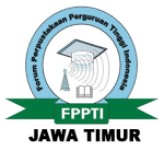Use of Instagram as a Promotion Media of the Faculty Library at Gadjah Mada University
Downloads
Background of the study: Libraries use social media to promote libraries for users, one of which is Instagram. Gadjah Mada University Library (UGM) and several faculty libraries have used Instagram as a promotional media, but not all are up to date.
Purpose: The purposes of this study are to identify the way the faculty library promotes through Instagram and analyze the motivation factors and obstacles faced in promoting the library through Instagram.
Method: This study was conducted at the faculty library at UGM used a thick description with a qualitative approach. Data collection techniques used are in-depth interviews, observation and literature study. This study discusses the use of Instagram as a library promotion media from librarians and staff who manage the library's Instagram.
Findings: The results of the study show that: First, seven of the eighteen library libraries at UGM were promoted through Instagram. The way the faculty library promoting on Instagram is through posting content such as documenting events, library services, promoting events, and e-resources. Second, the motivation factor of the faculty library at UGM to use Instagram as a promotion media is to adapt to the generation of users and social media used by users. The obstacle faced by most faculty libraries in using Instagram as a library promotion media is the limitations of Human Resources (HR).
Conclusion: The use of Instagram as a promotion media of faculty libraries at UGM is still not up to date. The majority of faculty libraries haven't used Instagram to promote the library. Seven faculty libraries have used Instagram but are not the same in up to date.
Downloads
A'yunin, N. A. Q. (2018). Promosi perpustakaan Pusat Studi Sosial Asia Tenggara Universitas Gadjah Mada Yogyakarta melalui media sosial. LIBRARIA, 10(1), 48-63.
Akporhonor, B. A., & Olise, F. N. (2015). Librarians' use of social media for promoting library and information resources and services in University Libraries in South-South Nigeria. Information and Knowledge Management, 5(6), 1-8.
Alvanoudi, N., & Vozana, P. (2019). Social media usage and assessment for Greek academic libraries. Artikel dipresentasikan di IFLA WLIC 2019, Athens, Yunani.
Asosiasi Penyelenggara Jasa Internet Indonesia (APJII) & Polling Indonesia. (2018). Penetrasi dan profil perilaku pengguna internet Indonesia survey 2018. Diakses dari https://apjii.or.id/survei2018s pada 29 Juli 2019.
Buarki, H., & Alkhateeb, B. (2018). Use of hashtags to retrieve information on the web. The Electronic Library, 36(2), 286-304. http://doi.org/10.1108/EL-01-2017-0011
Buriro, M. A., Rahoo, L. A., Nagar, M. A. K., Kalhoro, M., Abro, Q. A., Kalhoro, S., & Halepota, A. A. (2018). Social media used for promoting the libraries and information resources and services at university libraries of Sindh Province. Artikel dipresentasikan di 2018 IEEE International Conference on Innovative Research and Development (ICIRD), Bangkok, Thailand.
Burkhardt. (2010). Social media: A guide for college and university libraries. College and Reseacrh Libraries News, 71(1). Diakses dari https://crln.acrl.org/index.php/crlnews/article/view/8302/8392 pada 04 Januari 2020.
Cahyono, A. S. (2016). Pengaruh media sosial terhadap perubahan sosial masyarakat di Indonesia. PUBLICIANA, 9(1), 140-157.
Hootsuite & We Are Social. (2019). Digital 2019 Indonesia. Diakses dari https://www.slideshare.net/DataReportal/digital-2019-indonesia-january-2019-v01 pada 04 Januari 2020.
Khan, S. A., & Bhatti, R. (2012). Application of social media in marketing of library and information services: A case study from Pakistan. Webology, 9(1). Diakses dari http://www.webology.org/2012/v9n1/a93.html pada 04 Januari 2020.
Khoir, S., & Davison, R. M. (2014). Applications of social media by digital natives in the workplace: An exploratory study in Indonesia. Artikel dipresentasikan di 25th Australasian Conference on Information Systems, 8-10 Dec, Auckland, New Zealand.
King, D. L. (2015). Managing your library's social media channels. Library Technology Reports: Expert guides to library systems and services, 51(1), 5-35.
Masyithah, D. C. (2019). Pengetahuan dan pemanfaatan oleh mahasiswa atas Instagram perpustakaan sebagai sarana digital marketing. [Tesis]. Yogyakarta: Sekolah Pascasarjana Universitas Gadjah Mada.
Owolabi, K. A., Ajiboye, B. A., Bakare, O. D., Bello, T. O., Omotoso, A. O., & Adeleke, O. (2013). Librarians' attitude toward monetary and non-monetary incentives in universitylibraries: A case of selected university libraries in Nigeria. Annals of Library and Information Studies, 60, 22-26.
Polger, M.A., & Sich, D. (2019). Are they even following us?: Using market research data to understand students' social media preferences. Library Management, 40(8/9), 503-517. http://doi.org/ 10.1108/LM-06-2019-0031
Purwani. (2017). Penggunaan media sosial oleh perpustakaan. Libraria, 5(1), 69-86.
Republik Indonesia. (2014). Peraturan menteri pendayagunaan aparatur negara dan reformasi birokrasi Republik Indonesia nomor 9 tahun 2014 tentang jabatan fungsional pustakawan dan angka kreditnya. Diakses dari https://www.perpusnas.go.id/webforms/uploads/law/170921121704rQwKgUnEl7.pdf pada 12 Januari 2020.
Said, A., & Gunawan, I. (2018). Statistik gender tematik: Profil generasi milenial Indonesia. Jakarta: Kementerian Pemberdayaan Perempuan dan Perlindungan Anak.
Santosa, J. K. (2014). Lebih memahami sop. Surabaya: Kata Pena.
Tekulve, N., & Kelly, K. (2013, November). Worth 1.000 words: Using Instagram to engage library users. Artikel dipresentasikan di Brick and Click Libraries Symposium, Missouri, USA. Diakses dari https://ecommons.udayton.edu/roesch_fac/20/ pada 04 Januari 2020.
Tungga, S. D. S. (2018). Instagramability of Javanese quotes: Analysis of supporting elements of Instagram posts. Artikel dipresentasikan di International Conference on Industrial Technology for Sustainable Development (ICon-ITSD), Makassar, Indonesia.
Copyright (c) 2021 Leila Karunia

This work is licensed under a Creative Commons Attribution-ShareAlike 4.0 International License.
Record and Library Journal by Unair is licensed under a Creative Commons Attribution-ShareAlike 4.0 International License.
1. The journal allows the author to hold the copyright of the article without restrictions.
2. The journal allows the author(s) to retain publishing rights without restrictions
3. The legal formal aspect of journal publication accessibility refers to Creative Commons Attribution Share-Alike (CC BY-SA).
4. The Creative Commons Attribution Share-Alike (CC BY-SA) license allows re-distribution and re-use of a licensed work on the conditions that the creator is appropriately credited and that any derivative work is made available under "the same, similar or a compatible license”. Other than the conditions mentioned above, the editorial board is not responsible for copyright violation.


 57201398420
57201398420

























